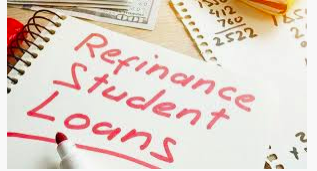Should I refinance my student loans?
With high interest rates, it’s typical to consider refinancing your loans. However, is refinancing right for you?
First of all, what is refinancing? By definition, it’s when a private lender pays off your loans, most commonly your federal student loans then replaces them with one loan with a new interest rate and new repayment schedule.
After graduating from dental school, at the end of my debt repayment journey, I was able to refinance my loans from 7.9% to 1.9%…and I learned a few things throughout the process that I have been showing the clients that I coach.
1. If you have a credit score of less than 700, do not refinance as you’ll most likely get denied or won’t get a good rate. You might get approved with a 680 credit score but most likely won’t get the best interest rate.
2. If you are in NHSC, the military or any type of loan repayment program, do not refinance as you will default on those. You need to decide whether or not you want to refinance or stay in those loan repayment programs.
3. If you are behind on your student loan payments, do not refinance.
4. Refinancing might not be the best option if you don’t have a steady income. One you refinance, IBR/ICR/Deferment/Forbearance, or any other benefits that you have by having federal loans go away.
5. What is your debt to income ratio?
You need to know your number before refinancing. Take all monthly debts and divide them by your monthly income. Your number should be less than 40% for you to get approved or most lenders will ask that you get a co-signer.
6. Do you have liquidity?
When refinancing your loans, most lenders will want to see funds in your bank account, brokerage account or retirement account.
Disclaimer: The post is for informational and educational purposes only. Please consult your financial adviser for appropriate financial advice.


Leave a Reply